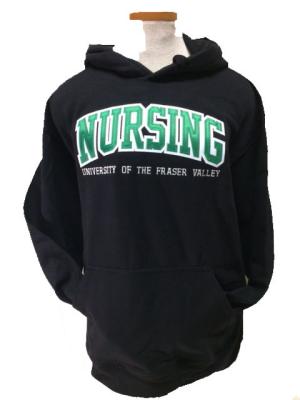The World Health Organization (WHO) has designated 2020 as the Year of the Nurse and Midwife in honor of the 200th anniversary of Florence Nightingale’s birth which falls on May 12 — also the day that International Nurses Day is celebrated around the world every year.
Canada recognizes its nurses during National Nurses Week from May 11 – 17. 2020’s theme is, A Voice to Lead; Nursing the World to Health. You can find everything you need to spread the word about the great profession of nursing and how it contributes to the wellbeing of the world at https://2020.icnvoicetolead.com/resources/
Indigenous Nurses Day in Canada’s is May 14, 2020 and highlights the achievements of Canada’s First Nations, Inuit and Métis nurses and recognizes their invaluable work improving the health and well-being of Canadians.
During the current global pandemic, nurses have been required to step into an extremely important leadership role as front line workers. They risk infection on a daily basis and are in charge of patient care, managing medical supplies and equipment, enforcing sanitation, and spreading knowledge and awareness. They are consistently working overtime and experience severe burnout. And although COVID-19 has increased their workload, this description accurately illustrates what life looks like for a nurse on a daily basis. So why would anyone want to be a nurse? I asked some of our own UFV Nursing faculty to share their stories of the journey that led them to this selfless profession. Thank you Maggie and Samarjit for your contribution and your service to UFV and the nursing profession.
MARGARET SHAMRO, Associate Professor, BSN Program
 “I have been a nurse for 14 years and have spent all of those years working in the mental health field in various capacities. I have always been fascinated by psychology and the study of human behaviour — so I am very grateful to have found a career that allows me to explore my passion for mental health in many different ways. I have had so many memorable experiences in my career already and many wonderful memories to reminisce on. Even though nurses often take delight in sharing their juiciest work stories with unsuspecting listeners – I will spare you the gory details and just say that I have some very entertaining stories to share if you ever want to hear them over a glass of wine sometime. One thing I will say is that working in mental health has taught me to truly appreciate the strength and resilience of the human spirit. I have seen people face tremendous pain, adversity and change and still keep on moving forward. This knowledge and perspective has helped me immensely in my life – particularly during this global pandemic that we are all facing. Now, more than ever, I am so proud to be part of the nursing profession and to see how much nurses are doing on a global scale to help keep us all safe. For mental health nurses, I anticipate that this work will continue long after the pandemic is over – but we are ready for that challenge. A bit of advice I would share during this challenging time comes from one of my favourite quotes. The teacher, Thich Nhat Hanh reminds us that “there is joy and happiness in the present moment. If you are attentive – you will see it.” Despite all of the loss, change and illness that surrounds us — there are still so many beautiful examples of connection, creativity, and compassion to take note of. As nurses, staying focused and attentive in the present moment helps keep us grounded and strong. This means we are more able to see the beauty and humanity around us — and more able to show compassion to ourselves, our patients and our communities. Be kind to yourselves and be proud to be part of such an amazing profession.”
“I have been a nurse for 14 years and have spent all of those years working in the mental health field in various capacities. I have always been fascinated by psychology and the study of human behaviour — so I am very grateful to have found a career that allows me to explore my passion for mental health in many different ways. I have had so many memorable experiences in my career already and many wonderful memories to reminisce on. Even though nurses often take delight in sharing their juiciest work stories with unsuspecting listeners – I will spare you the gory details and just say that I have some very entertaining stories to share if you ever want to hear them over a glass of wine sometime. One thing I will say is that working in mental health has taught me to truly appreciate the strength and resilience of the human spirit. I have seen people face tremendous pain, adversity and change and still keep on moving forward. This knowledge and perspective has helped me immensely in my life – particularly during this global pandemic that we are all facing. Now, more than ever, I am so proud to be part of the nursing profession and to see how much nurses are doing on a global scale to help keep us all safe. For mental health nurses, I anticipate that this work will continue long after the pandemic is over – but we are ready for that challenge. A bit of advice I would share during this challenging time comes from one of my favourite quotes. The teacher, Thich Nhat Hanh reminds us that “there is joy and happiness in the present moment. If you are attentive – you will see it.” Despite all of the loss, change and illness that surrounds us — there are still so many beautiful examples of connection, creativity, and compassion to take note of. As nurses, staying focused and attentive in the present moment helps keep us grounded and strong. This means we are more able to see the beauty and humanity around us — and more able to show compassion to ourselves, our patients and our communities. Be kind to yourselves and be proud to be part of such an amazing profession.”
SAMARJIT DHILLON, Associate Professor, BSN Program — Through the Eyes of an Internationally Educated Nurse (IEN)
“Internationalization in nursing provides an avenue for sharing knowledge and practices between countries and helps to broaden the umbrella of knowledge of science in nursing and health. In light of the upcoming International Nurses Day on May 12th, and Florence Nightingale’s birthday anniversary, I am taking a trip down memory lane to reflect on my journey in Canada as an IEN. I am sharing this experience to highlight some of the contextual factors in Canada that helped me be successful as an IEN in Canada and what internationalization adds to the arena of health care in Canada.”
the arena of health care in Canada.”
My journey: I arrived in Canada in 1997 with a Bachelor of Science in Nursing (BSN) degree from Punjab, India. My journey included the process of proving English proficiency, writing the licensing examination to be a Registered Nurse (RN) in BC, practicing as a RN for 7 years, pursuing a Masters of Science in Nursing degree from UBC, joining UFV as an Associate Professor of Nursing in the BSN program, and now beginning a Doctor of Education (EdD) degree from Athabasca University next week. I must say that every facet of my nursing and academic experience has been positively touched by my experience of integrating into the Canadian workforce.
What made it a positive experience for me: People’s openness to learn about a person from a different culture, willingness to respect that culture, and attempts to be inclusive towards me were all the things that helped me fall in love with nursing in Canada. My supervisors and co-workers conveyed confidence in me and my abilities, while being patient with my learning of the new health care system. Basics of nursing are the same regardless of where you practice: compassion, caring, collaboration, respect, integrity, empathy. But what differs between different parts of the world is the physical environment, systems, resources, attitudes, beliefs, culture, and nurses’ roles. So, willingness to be open, receptive, and patient with professionals from other countries and backgrounds (while they learn the new norms and expectations) goes a long way.
What Internationalization is good for: Being born, raised and educated in India and having the opportunity to live and practice nursing in a different part of the world has opened up many learning and development opportunities for me, not only at a professional level but also at a personal level. It has taught me how to be aware and respectful of other ways of being, different beliefs, practices, and norms. It has boosted my ability to provide culturally sensitive care to patients from different cultural backgrounds. In my academic world, it has helped me be more respectful and inclusive towards students from different cultural backgrounds. I feel that it has made me into a better person, nurse, and educator. Along with personal gains for the international professionals, integration of international nurses into the workforce helps bring together new and different perspectives and expertise that helps us move towards providing better care to our multicultural population in Canada.
A shout out to all my colleagues: On this International Nurses Day, I want to convey my sincere thanks to many Canadian and International nurses working in various health care contexts, for their dedication and caring towards their patients, especially during the COVID pandemic. There are many nursing colleagues in Canada and around the world, who are doing wonderful ongoing work to provide services in under served parts of the world, your services are an essential component to propel our world towards better health outcomes. A shout out to faculty members at UFV and other institutions who organize and support international learning experiences for their students. I feel that the experience of internationalization really helps to broaden our perspectives and helps to minimize the barriers between and within different parts of the world, leading us all towards a better world to live in.
What can we do better: Even though my professional journey in Canada has been very smooth and enjoyable, I still come across stories of many nurses (and other professionals) from different parts of the world, who have not been able to translate their international education and experience into appropriate careers in Canada. We have come a long way in integrating foreign educated/trained professionals into Canadian workforce. However, the work must continue to break down the remaining barriers and support foreign educated professionals to pursue their areas of work in Canada.

